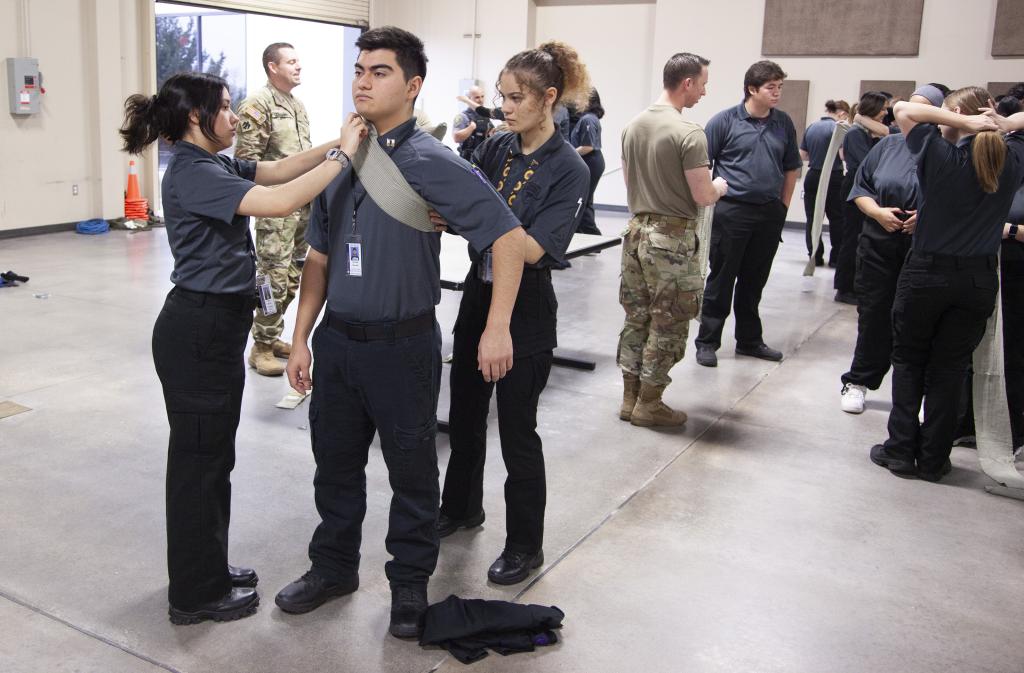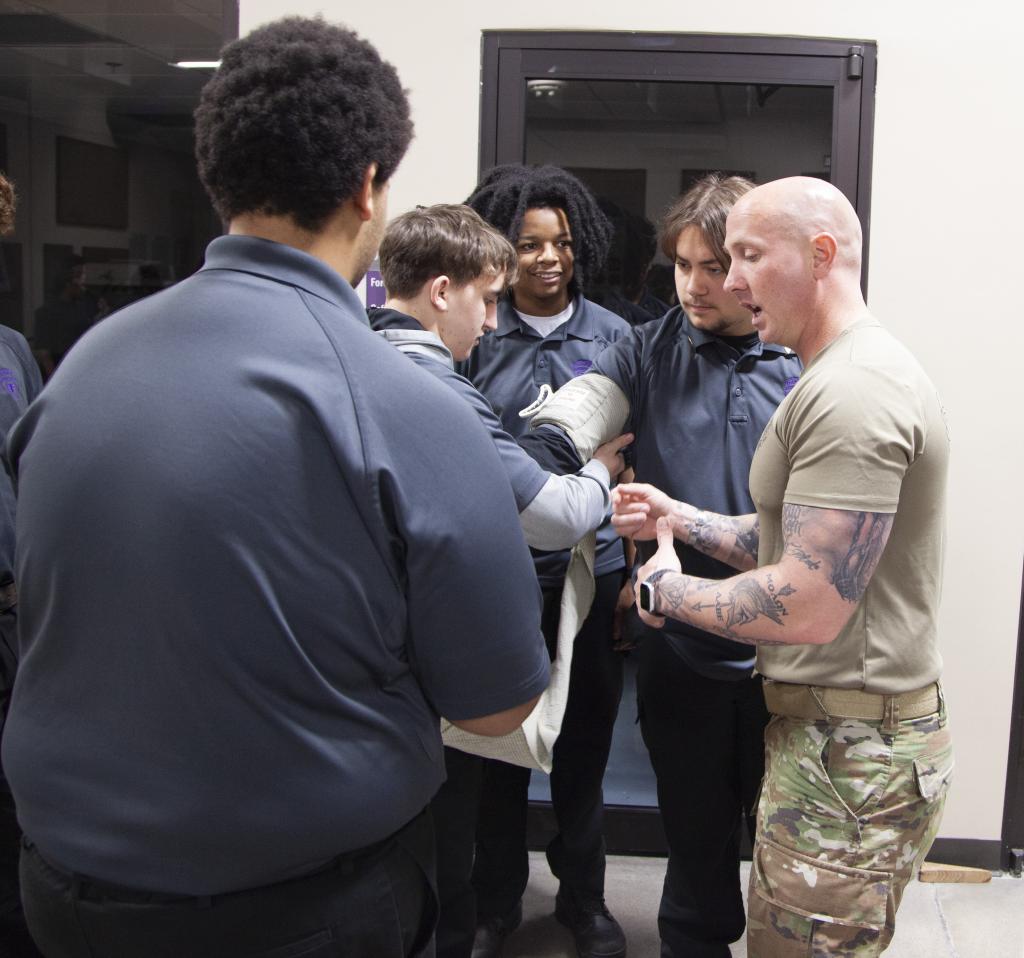Criminal Justice students hone emergency response skills
The jobs students can find through the Criminal Justice program often come with some level of risk.
Safety and awareness training is a key part of the Criminal Justice program at Francis Tuttle. So it was great to have members of the Oklahoma National Guard provide combat-level safety training to ensure students are more than prepared for any situation.
"This training is really important," first-year student Sara Garcia, who attends Edmond Memorial, said. "So we’re spending this time to learn the basics. It’s important to have that knowledge and to know what to do in certain situations, no matter what career we go into."
Members of the Army National Guard provided Criminal Justice students in both the Rockwell and Reno campus programs with a modified version of the Combat Lifesaver training course.
The students began by learning the basics of putting pressure on wounds, how to use and apply bandages, the proper use of tourniquets, how to use a splint, and how to use these items on different areas of the body.
They also learned how to tell when the scene of an incident is safe before providing aid. MSgt. Nicholas Coleman said the course is designed for soldiers, but his group altered it slightly to fit with what the Criminal Justice program students need.
"This training is mostly for infantry soldiers to teach them how to render first aid," Coleman said. "We’ve altered it a bit for today to be more police centric."
Coleman said there is some crossover between what soldiers experience and what law enforcement can experience on the job.
"I feel like we all have some real-world experience to offer," he said. "We know what it takes to save a life."
Students ended their training in a timed exercise where they combined everything they had learned. They had to perform a scenario tending to a “wounded” dummy and complete their instructions in under two minutes.
"With them coming here, you know it’s the proper way of providing first aid that they have learned,” Garcia said.
The lifesaver training provided Criminal Justice students with a real-world application for the jobs they are seeking. And even if they don’t go into law enforcement, the first-hand knowledge could serve them well if they find themselves on the scene of an emergency.


